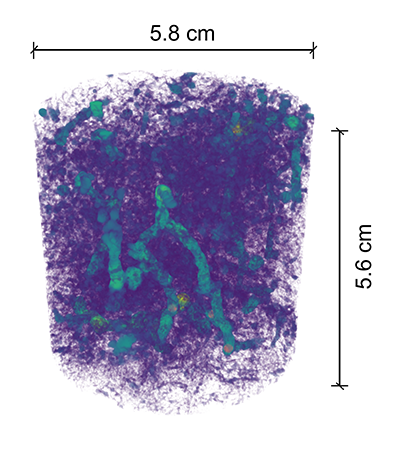New dissertation within One Health: We congratulate Tobias Klöffel!

Tobias Klöffel successfully defended his thesis at the beginning of February 2024. We took the opportunity to ask him some questions about his research and future plans.
What is your research about (the “big idea”) and how does it relate to One Health?
"My research addresses the question of how climate is linked to the physical status of agricultural soils and how this affects important soil functions related to water such as water storage, drainage and water transport to plants. This is done with the overall aim to derive potential consequences of climate change. The research relates to One Health by providing answers to the question of how a changing climate may affect soil functions, which are essential for healthy life such as food production, flood regulation and groundwater recharge."
What problem does your research help to solve in the short and long term?
"First of all, my research helps to find out whether any problems can be expected with climate change in the first place. From these findings, soil and water management strategies may be derived that are appropriate in a changing climate. Such management strategies have to make sure that agricultural soils will be able to (and continue to) cope with extreme weather events such as wet spells and droughts, which will become more likely in the future in most parts of the world."
How can your research contribute to a more sustainable world / what impact at the societal level can the results contribute to?
"A sustainable world can only be built on soils that are able to provide the essential functions we all depend on and that are able to buffer extreme weather events. My research contributes to this by exploring if these essential functions are at risk due to a changing climate and what is required by soil and water management to counteract potential negative consequences of climate change."
After your PhD, what are your plans for the near future?
"I will continue in research as a PostDoc at the University of Copenhagen. There I will model greenhouse gas emissions from agricultural soils with a particular interest in the role of soil structure and soil water dynamics. I will thus switch focus from the potential consequences of climate change to the actual drivers of climate change."
We wish Tobias the best of luck in his future career!

The image shows the pore space of soil derived from X-ray computed tomography. Characteristics of the soil pore space, such as the size or how well it is connected, determine the soil water functions and also how well extreme weather events can be buffered.